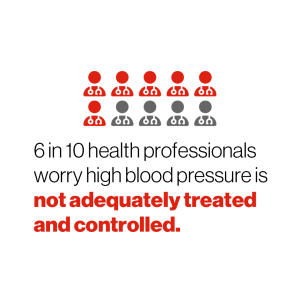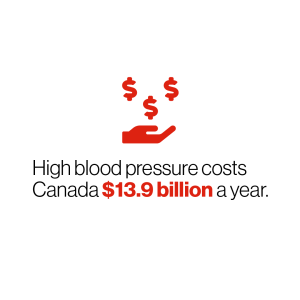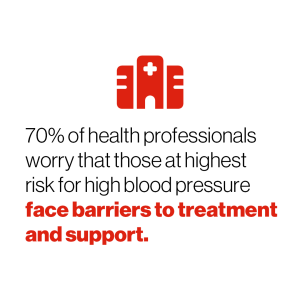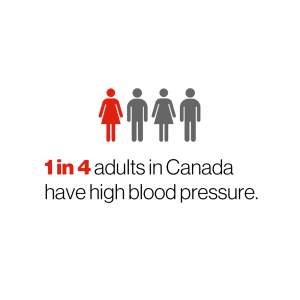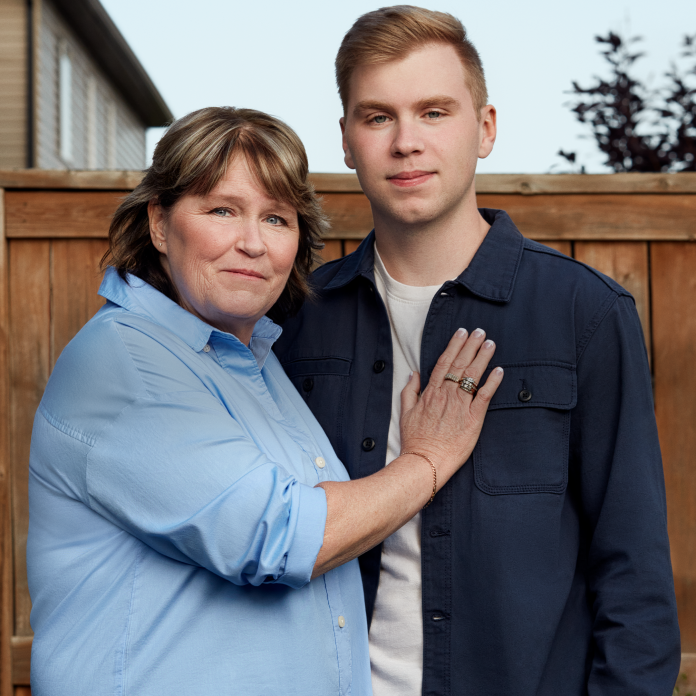
8 million adults in Canada have high blood pressure, and this number is on the rise. A Heart & Stroke expert weighs in on what it takes to prevent, manage and beat this condition
According to a new Heart & Stroke survey, eight in 10 health professionals are worried about high blood pressure in Canada — the number one risk factor for stroke and a major risk factor for heart disease.
High blood pressure, or hypertension, is often considered the ‘on-ramp’ to heart disease, stroke and vascular impairment. It’s the #1 risk factor for stroke, and a leading risk factor for heart disease.
While everyone experiences high blood pressure from time to time — including during exercise or in stressful situations — it becomes a problem when blood pressure remains elevated over a period of time. This is referred to as hypertension – ‘hyper’ meaning ‘too much’ and ‘tension’ referring to the pressure in the arteries.
This causes the heart to work harder than normal to pump blood through the blood vessels and can lead to heart failure, heart attack, stroke, kidney disease and kidney failure. It’s also been linked to dementia.
The Silent Killer
High blood pressure is often described as the ‘silent killer’ because there are usually no warning signs. More than seven in 10 health professionals surveyed are worried that people do not realize when they develop high blood pressure, and that they do not understand what it is or the risks associated with it.
“The only way to detect high blood pressure is to monitor it regularly,” says Dr. Patrice Lindsay, Director of Health Systems Change at Heart & Stroke. “It can be checked at the pharmacy or at home, but you should also have your healthcare provider monitor it on a regular basis, such as during periodic checkups. If they tell you you’re at a moderate or high risk of developing high blood pressure, then it should be checked at least once per year.”
More needs to be done
“The good news is that preventing and treating high blood pressure is a very effective way to reduce stroke and heart disease,” says Lindsay. “But there’s still more that needs to be done to get us there.”
“One of the biggest barriers to the diagnosis and treatment of high blood pressure is lack of access to family doctors and healthcare professionals,” she explains. “Ensuring access to regular care and follow-up with health professionals, providing education related to blood pressure and doing more routine blood pressure screenings in the community are key to raising Canadians’ awareness of high blood pressure, and diagnosing the condition early. We also need to address social determinants of health, like access to housing and nutritious foods.”
Advancing research is also key to better understanding risk factors — especially those that cannot be controlled, including:
Age:
Adults are living longer than in previous generations, and Canada’s population is aging. Age is a risk factor for several conditions, including hypertension, heart disease and stroke.
Gender:
After age 65, women are more likely than men to develop high blood pressure. Throughout a woman’s life, factors like pregnancy, birth control and menopause can increase their risk.
Family history:
Those who have a close family member who was diagnosed with high blood pressure are at an increased risk of developing the condition.
“While you cannot control all of your risk factors for high blood pressure, such as your family history, incorporating healthy habits into your daily routine, as best you can, will make a big impact on your blood pressure,” says Lindsay.
How you can reduce your risks:
- Reduce the amount of salt you eat
- Eat plenty of fruits, vegetables, low-fat dairy foods, beans and lentils
- Be smoke-free
- Be physically active for at least 2 1/2 hours per week
- Engage in healthy ways to manage your stress – try to find relief through physical activity, socializing, laughter, healthy eating and getting help when needed
- If you drink alcohol, limit yourself to small amounts, pace yourself and drink plenty of water in between.
For more information on high blood pressure, visit heartandstroke.ca/bloodpressure.

















